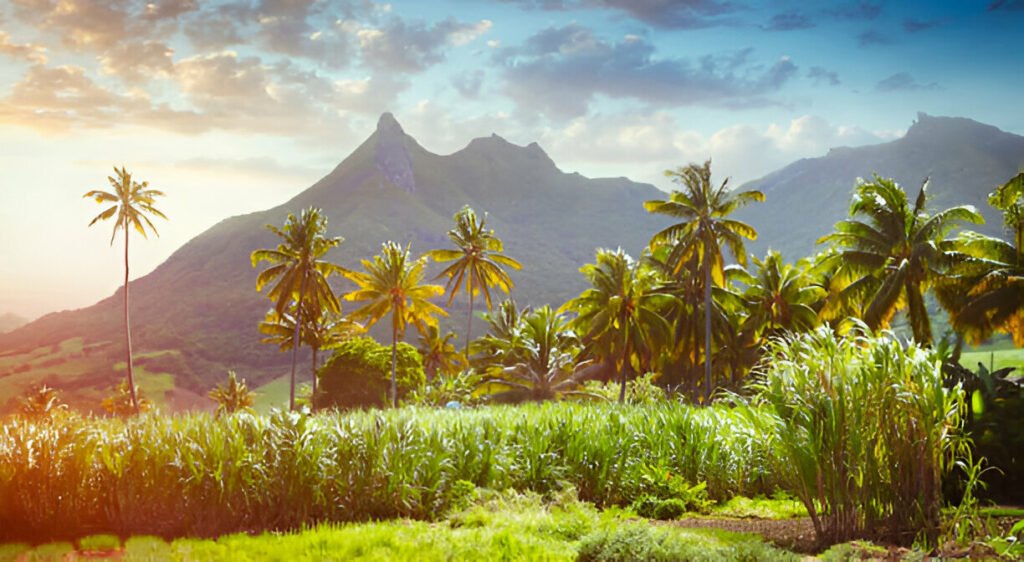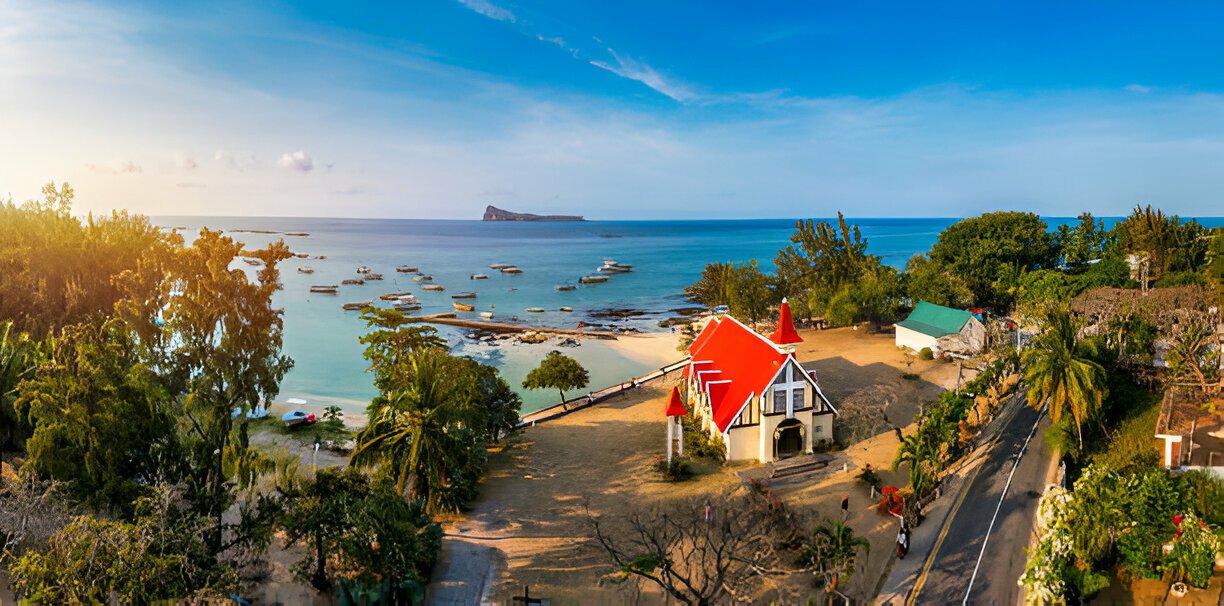What if your next big move came with palm trees, ocean views, and a paycheck? That’s not a fantasy, it’s an actual opportunity. The island nation of Mauritius is rolling out the welcome mat for bold dreamers, digital nomads, and forward-thinking entrepreneurs.
In an age where remote work and startup culture thrive, Mauritius is stepping up with incentives, saying, “Come build your future here.” With cash grants, long-stay visas, and a lifestyle most only see on postcards, this could be your chance to turn work into a tropical adventure.
How to Get Paid to Move to Mauritius
Mauritius offers an enticing opportunity for entrepreneurs through its Innovator Occupation Permit, which allows individuals to receive financial incentives to move to the island and establish innovative businesses. To qualify, applicants must propose a business idea that includes at least 20% research and development, aligning with the country’s focus on sectors like fintech, AI, and biotechnology. The process involves submitting a detailed business plan to the Economic Development Board, along with a minimum investment (usually starting at USD 20,000).
In return, entrepreneurs enjoy benefits such as tax breaks, infrastructure support, and potential grants or subsidies to cover operational costs. The permit is initially granted for up to 3 years, with the possibility of renewal for up to 10 years if the business meets performance criteria, such as job creation and revenue generation. Living in Mauritius also offers a high quality of life, with a tropical climate, political stability, and a welcoming, multicultural society. Through this program, entrepreneurs can thrive in a growing ecosystem aimed at fostering innovation and economic development, making Mauritius a prime destination for ambitious professionals.
Living in Mauritius
Weather In Mauritius

Mauritius has a tropical climate, offering warm temperatures and abundant sunshine year-round. The island experiences two main seasons: summer (November to April) and winter (May to October). During summer, temperatures range from 25°C (77°F) to 35°C (95°F), with high humidity making it feel warmer, especially along the coast. Rainfall is more frequent during this time, with short but intense showers, and the risk of tropical cyclones peaks between January and March.
In contrast, winter brings milder temperatures, ranging from 17°C (63°F) to 26°C (79°F), with lower humidity and reduced rainfall. The southeast trade winds make the island cooler, especially on the eastern coast. Coastal regions are typically warmer and more humid, while inland areas and the central plateau are cooler and less humid, offering a more comfortable climate.
The best time to visit is during the dry winter season, from May to October, when the weather is most pleasant for outdoor activities. However, the wet season offers lower accommodation prices and fewer tourists, though there’s a higher chance of rain and cyclones. With an average of 7-8 hours of sunshine daily, Mauritius remains an inviting destination throughout the year, whether you enjoy the heat of summer or the breezy winter temperatures.
Cost Of Living In Mauritius
The cost of living in Mauritius is relatively affordable compared to many Western countries, though it can vary depending on location and lifestyle. Coastal areas like Grand Baie and Flic en Flac tend to have higher living costs due to their popularity with tourists and expats. Rent for a one-bedroom apartment in the city center averages around MUR 20,000-30,000 per month, while outside the city, it can be more affordable, starting from MUR 10,000.
Groceries and dining out are also reasonably priced, with local food and markets offering good value, while imported goods tend to be more expensive. Utilities like electricity, water, and internet can cost between MUR 3,000-7,000 monthly.
Transportation is affordable, with public buses being inexpensive, although many expats prefer driving, with petrol prices averaging MUR 50 per liter. Overall, Mauritius offers a relatively low cost of living for those earning in foreign currencies, while the island’s beauty and lifestyle remain a major draw.
Languages Spoken In Mauritius
Mauritius is a multilingual country, with English as the official language used in government and business. However, French is widely spoken and is the dominant language in everyday life, media, and education. The majority of the population speaks Mauritian Creole (a French-based creole) as their first language, while Hindi, Bhojpuri, and other languages are also spoken by some communities, reflecting the island’s diverse cultural heritage.
Best Places To Live In Mauritius
North

The north of Mauritius is the most developed and popular for expats. Grand Baie is the main hub, offering beautiful beaches, vibrant nightlife, shopping malls, and a range of restaurants. It has a strong expat community and a lively, cosmopolitan atmosphere. Other north coast towns like Pereybere are quieter but still close to the amenities of Grand Baie.
South

The south is known for its natural beauty and tranquility, with less commercial development. Bel Ombre and Riviere Noire (Black River) are popular in this region for their stunning beaches, luxury resorts, and close proximity to nature reserves and hiking trails. The area offers a more peaceful, nature-focused lifestyle.
East
The east of Mauritius is more laid-back with scenic beaches and clear waters. Trou d’Eau Douce and Belle Mare are ideal for those looking for a quieter coastal lifestyle, offering stunning beaches and a slower pace of life. This region is also known for its luxury resorts and golf courses.

West
The West offers a more relaxed and family-friendly atmosphere. Flic en Flac is a popular expat destination with beautiful beaches, a variety of restaurants, and easy access to both nature and urban amenities. Tamarin, further down the coast, is quieter and offers a more serene lifestyle, ideal for nature lovers and surfers.
Healthcare in Mauritius
Healthcare in Mauritius is a mix of public and private services, offering good medical care to both residents and visitors. The public healthcare system is government-funded and provides affordable services, with hospitals like Victoria Hospital in Candos and Dr. A. G. Jeetoo Hospital in Port Louis offering a range of treatments.
However, the private healthcare sector is more popular among expats, providing faster access and more specialized care, with private hospitals like Wellkin Hospital and Medine Hospital. Healthcare services in Mauritius are generally of a high standard, but private healthcare can be costly without insurance. Many expats opt for private health insurance, which is widely available. While most treatments are affordable, for more complex or specialized care, some individuals may choose to seek treatment abroad.
Education and Schools in Mauritius
Mauritius offers a variety of educational options, catering to both local and expatriate families. The public education system is free and includes primary, secondary, and higher education, with a focus on bilingualism in English and French. However, public schools may have limited resources, and competition for spots can be high in popular areas.
For expatriates, several private international schools follow foreign curricula such as the British, French, or International Baccalaureate (IB) systems. These schools, such as International School of Mauritius (ISM), Le Bocage International School, and The British International School, provide high-quality education and often offer smaller class sizes, making them ideal for families looking for an international education.
Other Ways You Can Move To Mauritius
Apart from traditional work and residence visas, there are several other ways you can move to Mauritius, depending on your situation and preferences:
- Investment and Business Visa: If you’re an entrepreneur or investor, you can apply for the Occupation Permit (Investor), which allows you to live and work in Mauritius if you’re investing in a business that meets the minimum investment requirements. This is an attractive option for those looking to start a business or invest in local enterprises.
- Retirement Visa: Mauritius offers a Retirement Visa for retirees over the age of 50 who have a stable income or substantial savings. The visa allows retirees to live on the island for up to 10 years, with the possibility of renewal. Applicants must show proof of a monthly income or investment that meets the minimum financial criteria set by the government.
- Permanent Residency for Professionals: Highly skilled professionals with an Occupation Permit (Professional) can apply for a Permanent Resident Permit after living in Mauritius for 3 years, allowing them to stay and work long-term.
- Property Ownership: If you purchase property in Mauritius under schemes such as the Property Development Scheme (PDS) or Integrated Resort Scheme (IRS), you can gain residency. These schemes are designed for foreign investors who buy high-value property (e.g., luxury villas or apartments).
- Mauritian Citizenship by Descent: If you have Mauritian ancestry (a parent or grandparent who was born in Mauritius), you may be eligible for citizenship, which would grant you the right to live and work in the country.
- Student Visa: If you’re coming to Mauritius for educational purposes, you can apply for a Student Visa. Many international students come to Mauritius to study at universities or colleges offering various degree programs in fields like business, medicine, and hospitality.
FAQs
Do I Need To Be In Mauritius To Start My Application Process?
No, you do not need to be in Mauritius to start your application process. However, certain steps, such as biometric data collection or interviews, may require your presence in Mauritius later in the process.
Can I Buy Property In Mauritius?
Yes, foreigners can buy property in Mauritius through schemes like the Integrated Resort Scheme (IRS) or Property Development Scheme (PDS), with a minimum investment of USD 375,000. These schemes also grant residency rights for the buyer and their immediate family.
Can I Bring My Family With Me?
Yes, you can bring your family with you to Mauritius, provided you meet the visa requirements for dependents. This typically applies to those with work, investment, or residence permits, where immediate family members (spouse and children) are allowed to join.
Is Mauritius Safe To Live In?
Yes, Mauritius is generally considered safe to live in, with low crime rates and a welcoming atmosphere. While petty crime like theft can occur, especially in tourist areas, the island is known for its peaceful environment and strong community values.
Hi there. My name is Abbas Khan. I’m passionate about finding smart ways to save and make money from anywhere in the world.
Learning how to earn remotely and manage my finances gave me true freedom, and now I want to help you do the same.
Join me as I explore money-saving hacks, income ideas, and tips to build a flexible, location-independent lifestyle you’ll love.


3 thoughts on “How to Get Paid to Move to Mauritius: A Complete Guide”